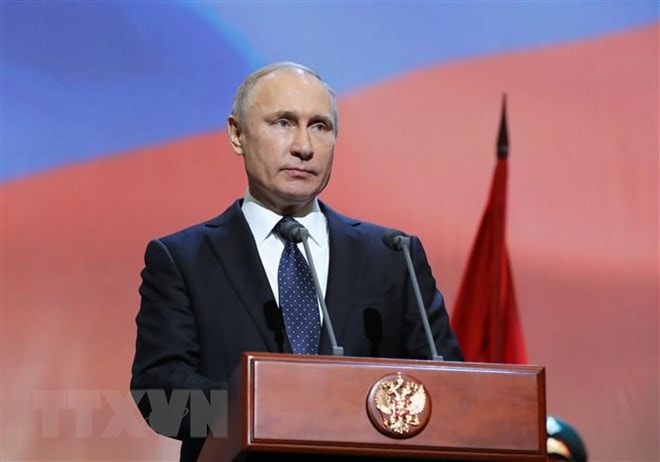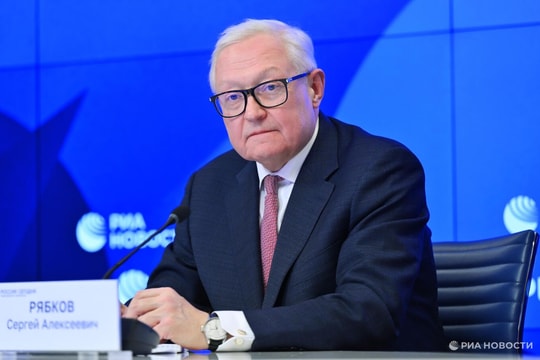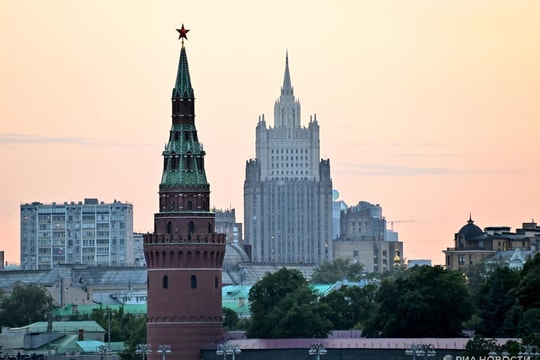President Putin announced to stop complying with the Intermediate-Range Nuclear Forces Treaty
Russian President Vladimir Putin said his country has decided to stop complying with the Intermediate-Range Nuclear Forces (INF) Treaty, in response to a similar decision from the United States.
 |
| Russian President Vladimir Putin speaks at a celebration in St Petersburg, Russia, January 27. Photo: AFP/TTXVN |
Speaking at a televised meeting with the country's foreign and defense ministers, President Putin said: "Our American partners have announced that they will stop complying with the INF, and we will also stop complying with it."
The Russian leader said the country will start building new missiles, including hypersonic missiles, and instructed the Russian Defense Minister and Foreign Minister not to talk with the US about disarmament.
Russia's move came after US President Donald Trump announced on February 1 that Washington was withdrawing from the INF, citing "Moscow's violation of the treaty."
In a statement, President Trump stated that the US will stop its obligations under the INF Treaty with Russia from February 2 and begin the process of withdrawing from the INF.
He stressed that the process would be completed within six months unless Russia returned to compliance with the treaty by destroying all of its violating missiles, launchers and related equipment.
According to the US leader, Washington has complied with the treaty for more than 30 years and will not continue to be limited by the terms of the INF, while Russia continues to violate it.
He asserted that once arms control discussions with Russia are completed, Washington will be ready for a prominent economic, trade, political and military-level relationship with Moscow.
Responding to the US statement, on February 2, Chinese Foreign Ministry spokesman Geng Shuang said that China opposes the US withdrawal from the INF, and called on Moscow and Washington to negotiate to resolve differences.
In a statement on the Chinese Foreign Ministry's website, Mr. Geng Shuang stated: "China opposes the US announcement that it will withdraw from the INF, and urges Russia and the US to resolve differences appropriately through dialogue."
In addition, China also opposes the establishment of a multilateral agreement to replace the INF Treaty.
The INF Treaty was signed by the leaders of the former US and Soviet Union on December 8, 1987 and officially took effect from June 1, 1988.
Under the treaty, both sides pledged not to produce, test, or deploy medium- and short-range (500-5,500km) ground-based ballistic and cruise missiles.
In October 2018, US President Donald Trump accused Russia of violating the treaty by building the “Novator 9M729” missile.
By December 2018, the US announced that it would withdraw from this treaty if Russia did not return to compliance within 60 days - the deadline being February 2.
However, Russia announced that it would not destroy the "Novator 9M729," and affirmed that this type of missile does not violate the INF.
According to Moscow, the US is making up an excuse to withdraw from the treaty so that it can freely develop new types of missiles.
Russian President Vladimir Putin said that the US withdrawal from the INF would threaten the fate of the Strategic Offensive Arms Reduction Treaty (START-3), the last document in the field of arms control.
Many of America's allies in Europe also oppose the US withdrawal from the INF due to concerns about a new arms race./.



.jpg)
